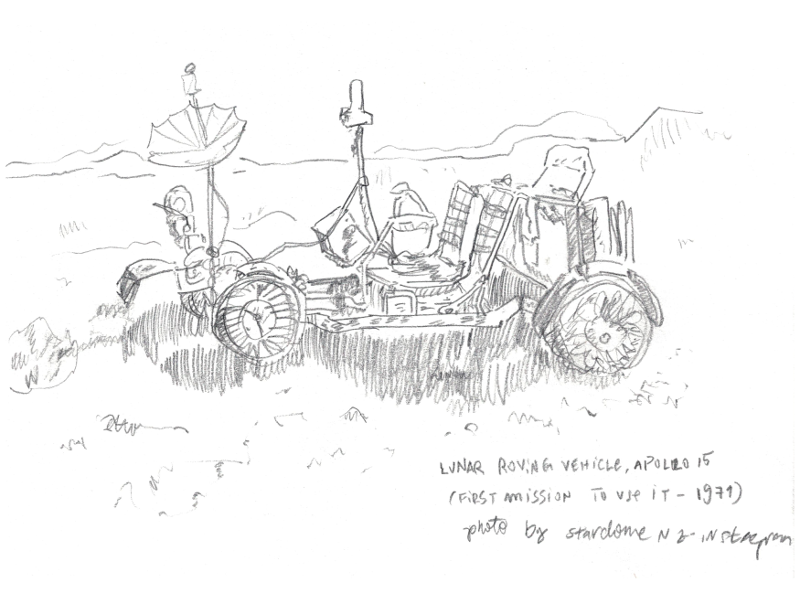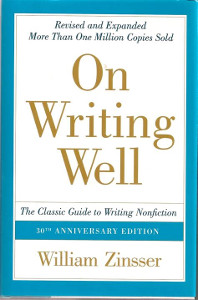Science books and articles from Zinsser's "On Writing Well" book
“On Writing Well” is a book by William Zinsser, published for the first time in 1976 but already past its seventeenth edition. It is extremely well written - as it was expected for a book with such title - and also funny and simple to read.

The book is full of excerpts and quotes from other books and articles, used as good or bad examples. In one of its chapters where Zinsser discusses writing about Science he lists books and articles on the topic that were well written.
This post contains books and articles mentioned on page 158 of the 2006 30th anniversary edition, except for the last article written by Glenn Zorpette that was on another page - but still looked interesting, so I decided to include it anyway.
In the lists below, the author name contains a link to a Wikipedia page about him/her. And the book title contains a non-affiliated link to Amazon, where it is possible to read a description of the book, as well as read sample pages. Below each entry is the content of the first paragraph of the Wikipedia page. The articles have links to existing PDF’s or the original place where it was published.
The books are the following:
Rachel Louise Carson (May 27, 1907 – April 14, 1964) was an American marine biologist, author, and conservationist whose book Silent Spring and other writings are credited with advancing the global environmental movement.
Charles Robert Darwin, FRS FRGS FLS FZS (12 February 1809 – 19 April 1882) was an English naturalist, geologist and biologist, best known for his contributions to the science of evolution.[I] His proposition that all species of life have descended over time from common ancestors is now widely accepted, and considered a foundational concept in science.[
Primo Michele Levi (31 July 1919 – 11 April 1987) was an Italian Jewish chemist, partisan, Holocaust survivor and writer. He was the author of several books, novels, collections of short stories, essays, and poems. His best-known works include If This Is a Man (1947, published as Survival in Auschwitz in the United States), his account of the year he spent as a prisoner in the Auschwitz concentration camp in Nazi-occupied Poland; and The Periodic Table (1975), linked to qualities of the elements, which the Royal Institution named the best science book ever written.
Sir Peter Brian Medawar OM CBE FRS (28 February 1915 – 2 October 1987) was a Brazilian-born British biologist, whose work on graft rejection and the discovery of acquired immune tolerance was fundamental to the practice of tissue and organ transplants. For his works in immunology he is regarded as the “father of transplantation”. He is remembered for his wit both in person and in popular writings. Famous zoologists such as Richard Dawkins referred to him as “the wittiest of all scientific writers”, and Stephen Jay Gould as “the cleverest man I have ever known”.
Oliver Wolf Sacks, CBE FRCP (9 July 1933 – 30 August 2015) was a British neurologist, naturalist, historian of science, and author. Born in Britain, and mostly educated there, he spent his career in the United States. He believed that the brain is the “most incredible thing in the universe.” He became widely known for writing best-selling case histories about both his patients’ and his own disorders and unusual experiences, with some of his books adapted for plays by major playwrights, feature films, animated short films, opera, dance, fine art, and musical works in the classical genre.
Stephen Jay Gould (September 10, 1941 – May 20, 2002) was an American paleontologist, evolutionary biologist, and historian of science. He was also one of the most influential and widely read authors of popular science of his generation. Gould spent most of his career teaching at Harvard University and working at the American Museum of Natural History in New York. In 1996, Gould was hired as the Vincent Astor Visiting Research Professor of Biology at New York University, where he divided his time teaching there and at Harvard.
Stanisław Marcin Ulam (13 April 1909 – 13 May 1984) was a Polish scientist in the fields of mathematics and nuclear physics. He participated in the Manhattan Project, originated the Teller–Ulam design of thermonuclear weapons, discovered the concept of the cellular automaton, invented the Monte Carlo method of computation, and suggested nuclear pulse propulsion. In pure and applied mathematics, he proved some theorems and proposed several conjectures.
Paul Charles William Davies AM (born 22 April 1946) is an English physicist, writer and broadcaster, a professor at Arizona State University as well as the Director of BEYOND: Center for Fundamental Concepts in Science. He is affiliated with the Institute for Quantum Studies at Chapman University in California. He has held previous academic appointments at the University of Cambridge, University College London, University of Newcastle upon Tyne, University of Adelaide and Macquarie University. His research interests are in the fields of cosmology, quantum field theory, and astrobiology. He proposed that a one-way trip to Mars could be a viable option.
Freeman John Dyson FRS (born 15 December 1923) is an American theoretical physicist and mathematician, of British origin, known for his work in quantum electrodynamics, solid-state physics, astronomy and nuclear engineering. He is professor emeritus in the Institute for Advanced Study in Princeton, a member of the Board of Visitors of Ralston College and a member of the Board of Sponsors of the Bulletin of the Atomic Scientists.[10
And the articles:
Robert W. Keyes, The Future of the Transistor
Glenn Zorpette is an electrical engineer with IEEE Spectrum Magazine in New York, New York. He was named a Fellow of the Institute of Electrical and Electronics Engineers (IEEE) in 2013 for his contributions to professional communication in electrical and electronic technology.

Categories: Writing
Tags: Writing